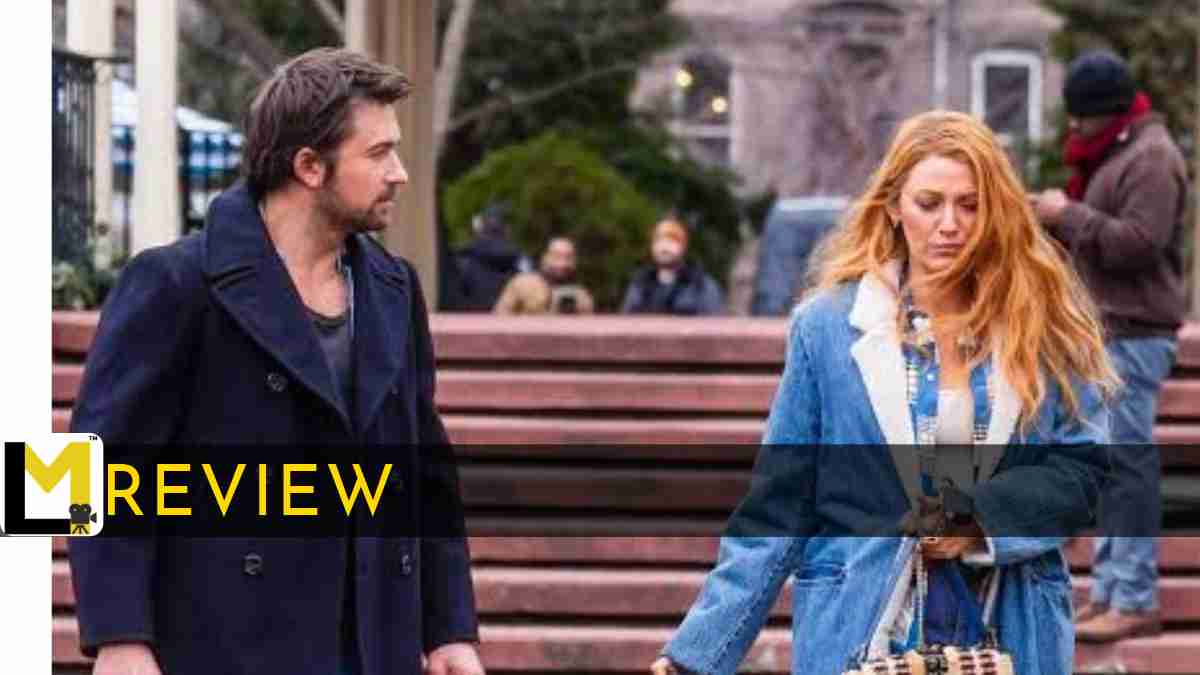It Ends with Us, based on the best selling book of the same name by Colleen Hoover, is a story that ultimately talks about domestic abuse and how women should make stronger decisions to make it stop. While the events that lead up to the climax have an approach that doesn’t necessarily demonize the abuser, the story takes a lot of time to reach that space, and the romantic episode and the conflicts within that don’t really have that depth to make us empathize with any of the characters. It is ultimately the political stand that helps the film to feel relevant.
Lily Bloom has come to her home after the demise of her father, with whom she had a very troubled relationship. After the funeral, she moves to Boston to open a flower shop, and there she meets this neurosurgeon named Ryle, and they both fall in love. The drama that unfolds in this relationship when Lily’s high-school sweetheart Atlas comes to Boston to start a restaurant is what we see in It Ends with Us.
In the initial areas of the movie, the script written by Christy Hall tries to make things interesting by narrating the past and present of Lily in parallel tracks. While it looks exciting on paper as it will force the audience to decode our leading lady, the execution sort of focused excessively on the romantic dynamic between Lily and Ryle. So, by the time the story reaches the point where Atlas starts to cause issues in the equation between the duo, we don’t really have much stuff to root for Lily. What I liked about the writing is how it depicted the idea of divorce in a less dramatic way, emphasizing the necessity of separation in certain cases.
Justin Baldoni approaches the idea in a very romantic comedy kind of way. The interactions between the characters, the flashback portions, etc., would give you the feeling of watching a very typical love story. When the conflicts start between the lead pair, there is no gradual progression to the events, and there is a hasty pace to the phase where Lily decides to put an end to her sufferings. Also, the childhood of Lily and the trauma of her mom demanded a bit more screen space in order to have a deeper impact. The final moments of the movie that show three generations of women have a lovely feel to its credit.
Blake Lively performs the part of Lily very effectively. The romantic patches have that palpable chemistry between the lead pair, and when things change, Blake portrays the dilemma and resilience of her character in a pretty convincing way. Isabela Ferrer, as the younger version of Lily, was a terrific casting, and the actor was pretty good too. Director Justin Baldoni, who plays the part of Ryle Kincaid, was fine in that role, and he makes sure that Ryle doesn’t come across as this habitual abuser. Brandon Sklenar plays the part of Atlas in the film along with Jenny Slate, Hasan Minhaj, and Amy Morton.
On a craft level, It Ends with Us is not really enticing you. But the cheesy romance and the typical trust issues eventually pave the way for a climax that talks about dealing with domestic abuse in a more practical way. The scene in the movie where Lily meets Ryle’s sister Allysa after getting abused is perhaps the moment It Ends with Us manages to find an emotional grip, and from that point, we could see ourselves getting invested in the decision-making of the central character.
What I liked about the writing is how it depicted the idea of divorce in a less dramatic way, emphasizing the necessity of separation in certain cases.
Green: Recommended Content
Orange: The In-Between Ones
Red: Not Recommended


